Donors
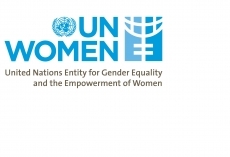
UN Women
Through innovative programmes, UN Women has been supporting Palestinian women since 1997 to achieve their social, economic and political rights.
While significant progress in gender equality and women’s empowerment has been achieved, the volatile and fragile context of the occupied Palestinian territory has made progress fragile and prone to regression. Years of Occupation and political strife have affected the socioeconomic situation of the Palestinian population as a whole and in particular, increased women’s vulnerability to social and economic insecurity and to an integrated system of violence
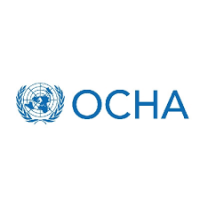
OCHA oPt
In 2002, OCHA established its Country Office in the occupied Palestinian territory (oPt), occupied by Israel since the 1967 war, to support international efforts to respond to the humanitarian situation in the West Bank, including East Jerusalem, and in the Gaza Strip.
The major drivers of humanitarian vulnerability in the oPt are the protracted occupation, the systematic denial of Palestinian human rights, and continuing conflict, punctuated by frequent outbreaks of violence. In the West Bank, continuing settlement expansion and the lack of a horizon for ending the occupation are major sources of frustration and conflict. In the Gaza Strip, years of blockade and recurrent outbreaks of hostilities have eroded basic infrastructure, service delivery, livelihoods and coping mechanisms. The overall context is that of a protracted protection crisis driven by lack of respect for international law, and a lack of accountability for violations.

Consulate General of Sweden in Jerusalem
weden established a Honorary Consulate General in Jerusalem 1903. Thus, in the year 2003, the Consulate celebrated its 100 years jubilee.
Swedish official presence in Jerusalem has been unbroken since that date. In 1991 the Consulate General became a career consulate with diplomatic personnel from Sweden.Today, its consular district covers Jerusalem, as well as the West Bank and Gaza strip.
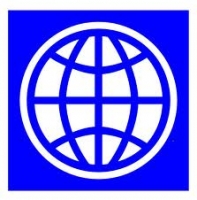
World Bank
The World Bank is a vital source of financial and technical assistance to developing countries around the world. The World Bank is not a bank in the common sense. The World Bank is made up of two unique development institutions owned by 185 member countries, the International Bank for Reconstruction and Development (IBRD) and the International Development Association (IDA).
Each institution plays a different but supportive role in the World Bank mission of global poverty reduction and the improvement of living standards. The IBRD focuses on middle income and creditworthy poor countries, while IDA focuses on the poorest countries in the world. Together they provide low-interest loans, interest-free credit and grants to developing countries for education, health, infrastructure, communications and many other purposes.

United Palestinian Appeal (UPA)
Established in 1978, United Palestinian Appeal, Inc. (UPA) is dedicated to providing aid to Palestinians in need in the West Bank, the Gaza Strip, and Palestinian refugee camps in Lebanon. UPA provides both emergency humanitarian relief and long-term development programs to Palestinian communities striving for economic and social development in the wake of ongoing conflict.
UPA works in all sectors of Palestinian society, from funding mobile health clinics and university scholarships to providing small grants for families to generate income with rooftop gardens. UPA sent millions of dollars" worth of pharmaceuticals to Gaza, and was able through its local partners to distribute emergency food, water, and first-aid during Operation Cast Lead. Whether it is youth leadership training, psychosocial support, or environmental solutions, UPA is at the forefront of a holistic effort to support Palestinians.
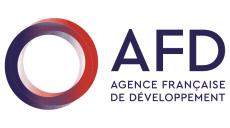
Agence Française de Développement
AFD is the Groupe Agence Française de Développement, a bi-lateral development finance institution established in 1941 that works on behalf of the French government. Its mission is to finance development according to France’s Overseas Development Assistance policies.
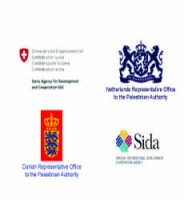
Switzerland, Denmark, Netherlands and Sweden (Donor Consortium)
A group of donors, namely Denmark, Netherlands, Sweden and Switzerland have decided to harmonize their financial assistance to NGOs that work on promoting Human Rights and Good Governance (HR/GG) in the oPt. This funding was a continuation of their support to the sector, which started in 2005. Accordingly, donors have identified a suitable implementing partner to establish a new mechanism through the Swiss Development Cooperation (SDC) to achieve this objective. This program is currently managed by NDC.
Switzerland, Denmark, Netherlands and Sweden (Donor Consortium)
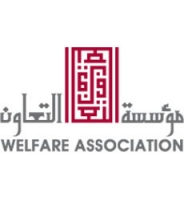
Welfare Association
As a leading Palestinian non-governmental development organization, the Welfare Association is dedicated to making a distinguished contribution toward furthering the progress of the Palestinians, preserving their heritage and identity, supporting their living culture and building civil society. It aims to achieve these goals by methodically identifying Palestinian needs and priorities and establishing sound mechanisms to maximize benefits from the available funding resources.
Welfare Association is a private, non-profit foundation established in Geneva in 1983 to support Palestinian society in sustainable development. It has become better known in Palestine and the Arab region by its Arabic name, Ta"awoun, meaning cooperation.
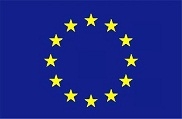
The European Union
The European Union is a unique economic and political partnership between 27 European countries.
It has delivered half a century of peace, stability, and prosperity, helped raise living standards, launched a single European currency, and is progressively building a single Europe-wide market in which people, goods, services, and capital move among Member States as freely as within one country.
The EU was created in the aftermath of the second world war. The first steps were to foster economic cooperation: countries that trade with one another are economically interdependent and will thus avoid conflict.
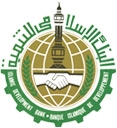
Islamic Development Bank
The Islamic Development Bank is an international financial institution established in pursuance of the Declaration of Intent issued by the Conference of Finance Ministers of Muslim Countries held in Jeddah in Dhul Q"adah 1393H, corresponding to December 1973. The Inaugural Meeting of the Board of Governors took place in Rajab 1395H, corresponding to July 1975, and the Bank was formally opened on 15 Shawwal 1395H corresponding to 20 October 1975.
The purpose of the Bank is to foster the economic development and social progress of member countries and Muslim communities individually as well as jointly in accordance with the principles of Shari"ah i.e., Islamic Law.
